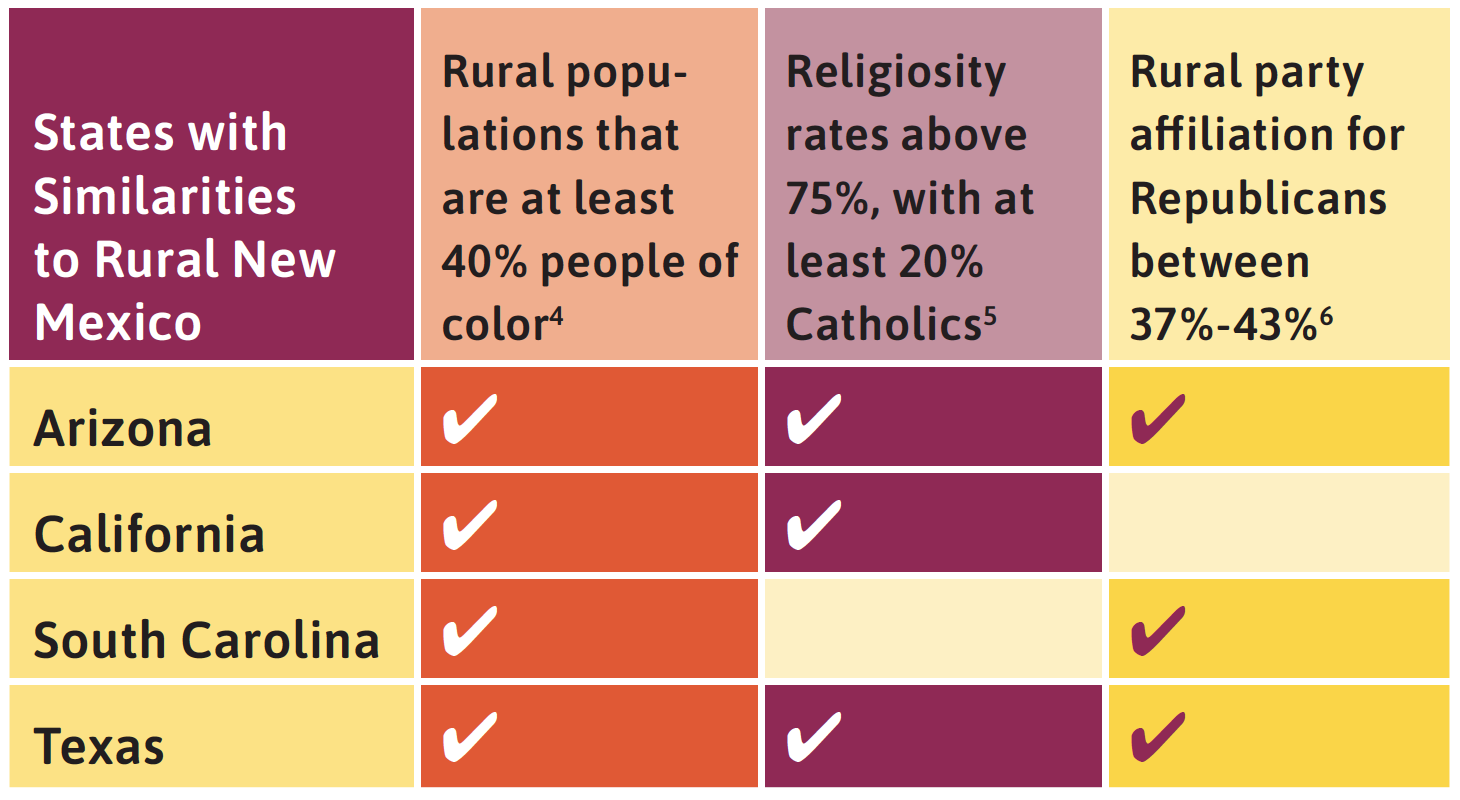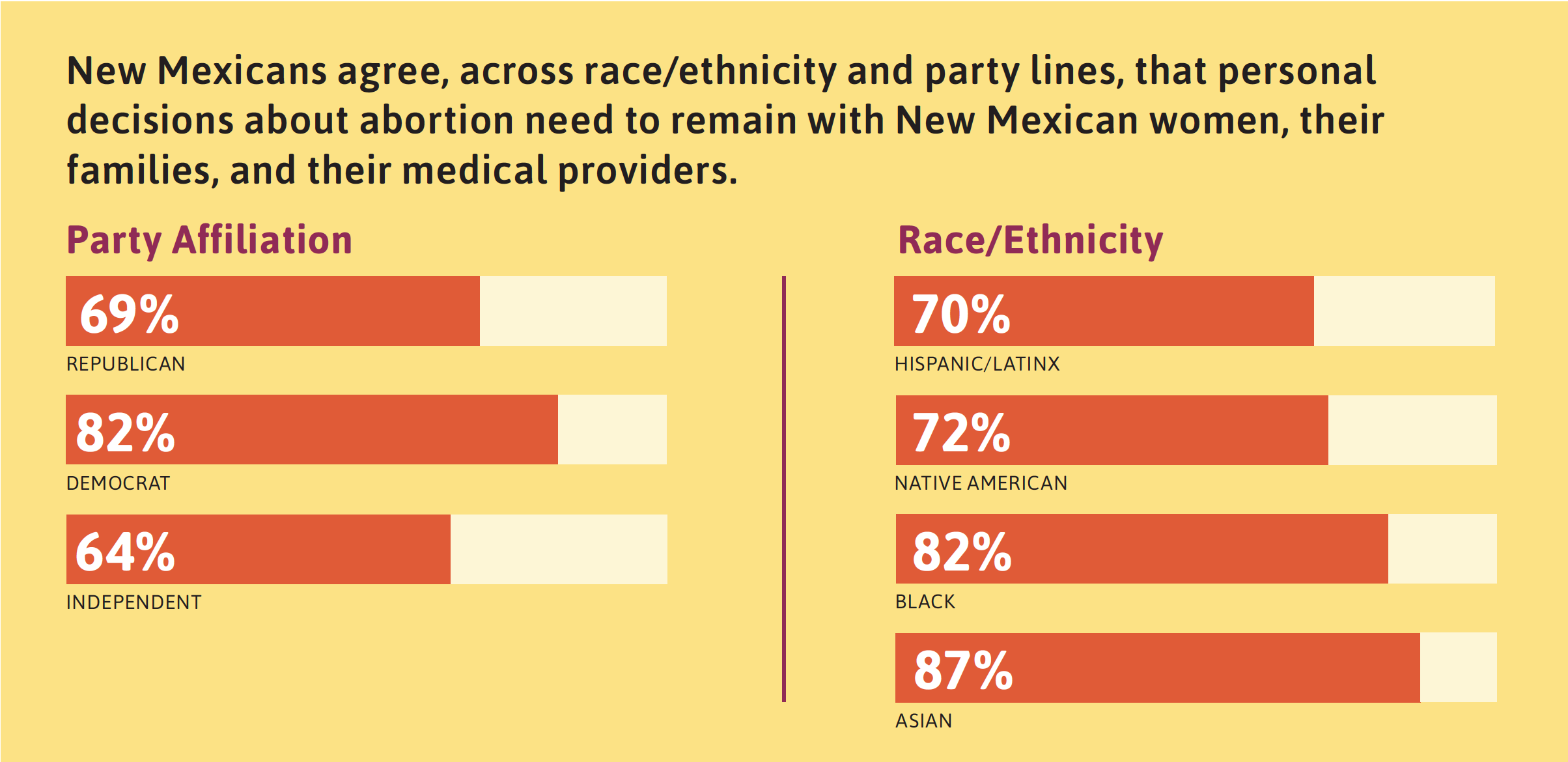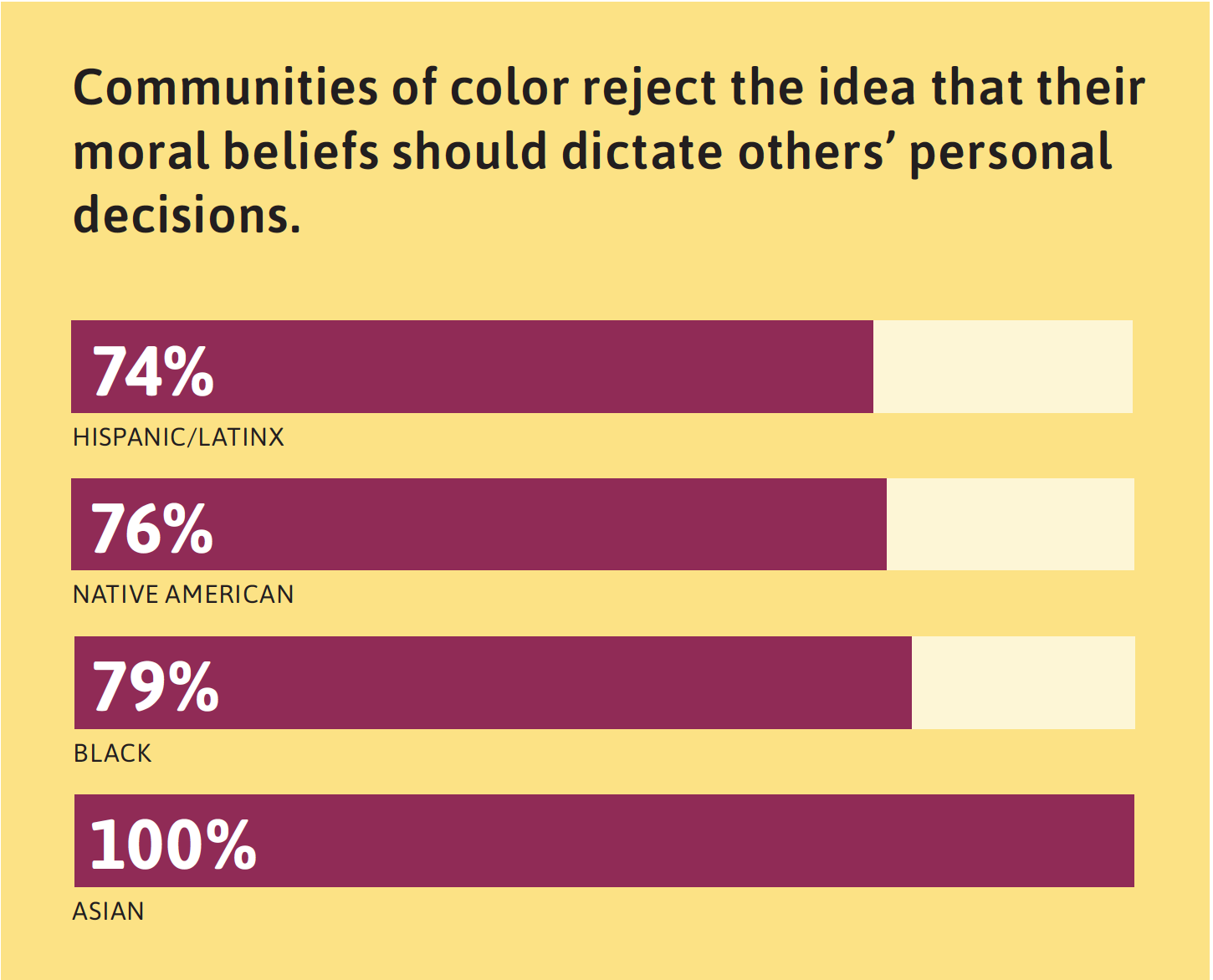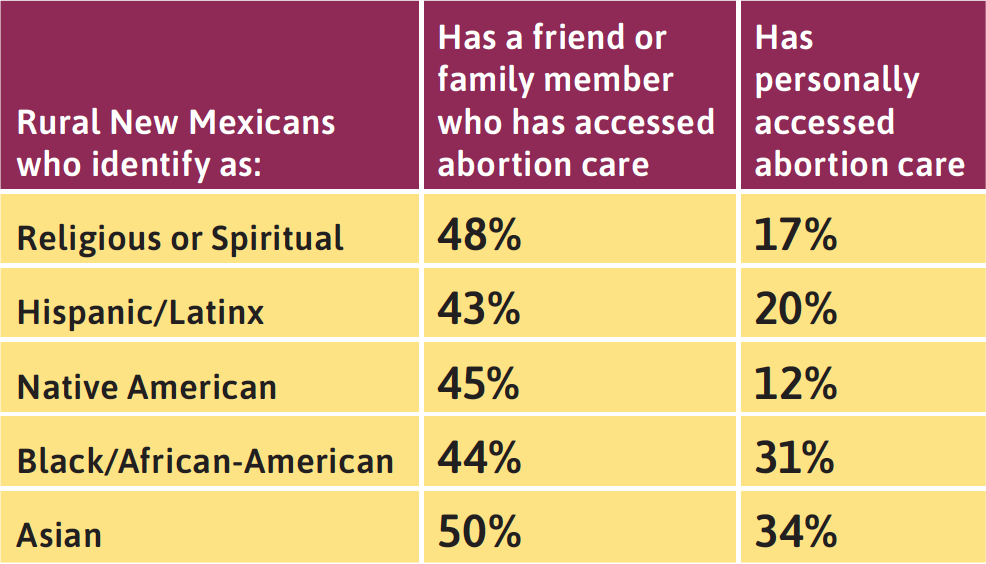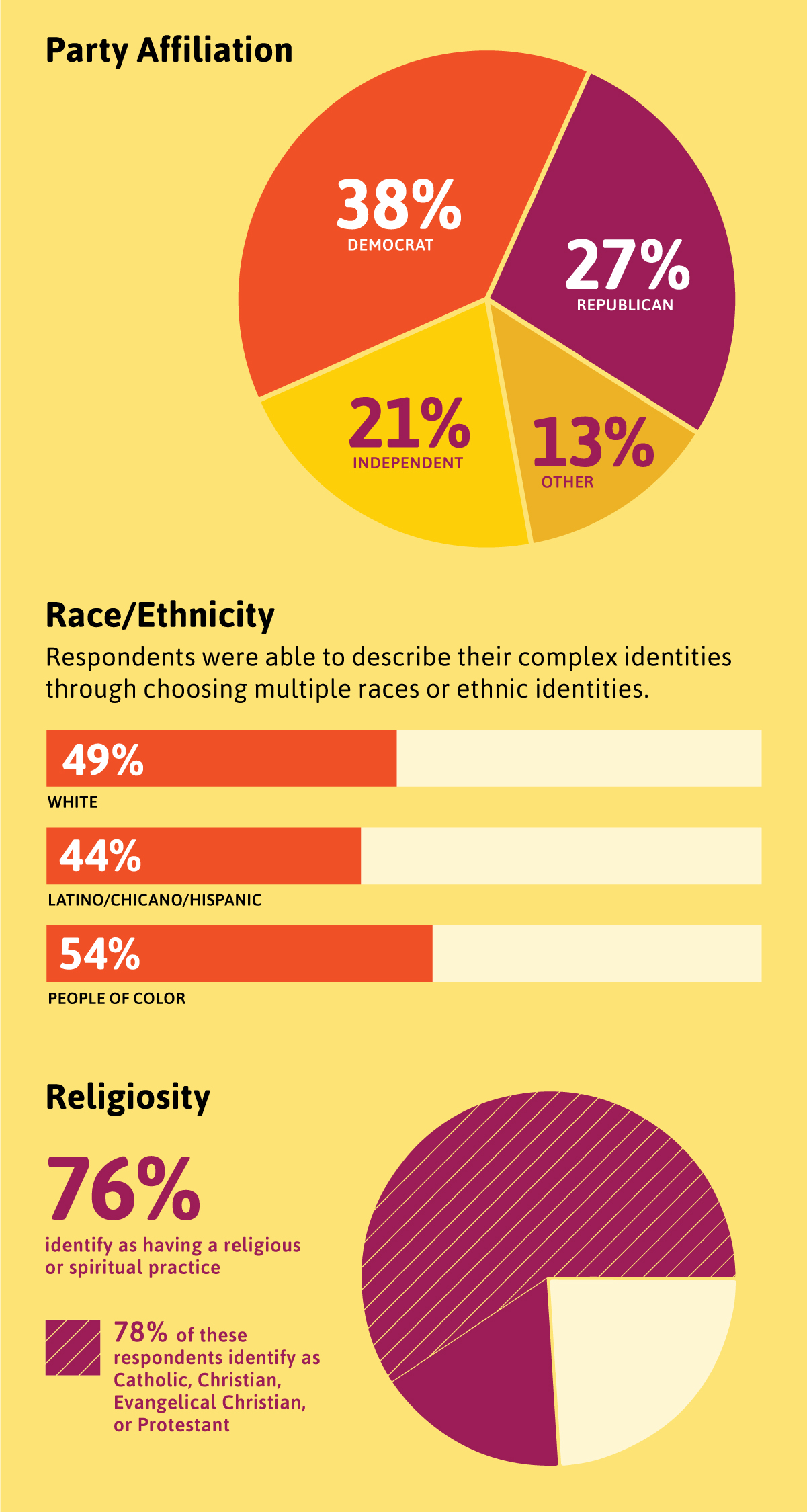The Road to Reproductive Justice
The majority of Americans believe that a full range of reproductive healthcare, including abortion should be legal. Too often, this reality is clouded by myths about who does and does not support access to abortion care.
The majority of Americans believe that a full range of reproductive healthcare, including abortion should be legal.1 Too often, this reality is clouded by myths about who does and does not support access to abortion care. Conservative politicians and those opposed to abortion access are pushing full steam ahead to chip away at access to abortion care. Claiming to speak for small town, rural and religious constituents, conservatives are building political power through a deluge of state2 and federal attacks3 on healthcare access, and especially on abortion access.
At the same time, reproductive health and rights advocates and elected allies often fall prey to stereotypes about rural people, people of faith and communities of color. When we deem people “too conservative,” “too Catholic,” and “too Hispanic” to engage in reproductive justice advocacy, we perpetuate a culture of assumptions and foregone conclusions about what rural communities, communities of color and faith communities believe.
In reality, people in these communities hold complex and respectful values. Recent research about attitudes of rural New Mexicans, by Forward Together, Latino Decisions and Young Women United, not only breaks down assumptions about who supports abortion access, but creates a road map for advocates and progressive decision makers to follow—a map that leads us to rural, religious and people of color communities.
While the research outcomes are specific to rural New Mexico, the results of this groundbreaking research are relevant for many predominantly rural states. States with significant rural populations of color include Arizona, California, Hawaii, Mississippi, North Carolina, New Jersey, and South Carolina to name a few.7 The demographics of these states—including religiosity and party identification—can be similar to New Mexico’s rural communities and we believe these data have significance beyond the Southwest.
Rural New Mexicans agree:
Self-determination is a shared value.
Of rural New Mexicans surveyed, 74% agree that “personal decisions about abortion need to remain with New Mexican women, their families, and their medical providers.” This strong commitment to the personal nature of complex life decisions crossed party, race/ethnicity, and religious lines—including 71% of people of faith.
Of rural New Mexicans surveyed. 77% agree that “I can hold my own moral views on abortion and still trust a woman and her family to make this decision for themselves.” As the Pew Research Center has documented, views of church members do not always align with institutional research on abortion. For example, nearly half of Catholics across the country believe abortion should be legal in spite of the Catholic Church’s strong opposition to abortion. People of faith regularly distinguish between their own moral view points and the importance of self-determination for others in personal decision making.8
Sexual and reproductive healthcare, including abortion, is required by the complexities of our lives.
Across the United States, 1 in 4 women will have an abortion by age 45.9 Additionally, millions of people each year become pregnant and need to grapple with what that means for themselves and their families.
Across faith and race/ethnicity, abortion care is integral to the lives of the majority of rural New Mexicans. Of rural New Mexicans surveyed. 53% have considered having an abortion and made the decision not to do so. Many others have made a different decision.
Nearly 1 in 2 rural New Mexicans who identify as religious or spiritual has a friend or family member who has accessed abortion care; and nearly 1 in 5 rural New Mexicans who identify as religious or spiritual have personally accessed abortion care.
In addition to decision making around terminating pregnancy, other factors complicate rural New Mexicans’ experiences of sexual and reproductive health.
Nearly double the national average,10 30% of rural New Mexicans surveyed reported that they or a partner had experienced a miscarriage or still birth. And while national data shows that an average of 20% of people have experienced sexual assault,11 32% of rural New Mexicans have experienced sexual assault or violence.
In the context of these lived experiences, 79% of rural New Mexicans surveyed agree that, “Whether due to the loss of a pregnancy, abortion care, or prenatal care, women deserve to be supported and respected and not shamed when seeking reproductive healthcare.”
Access to full reproductive healthcare is necessary in rural areas.
Of rural New Mexicans surveyed, 56% believe that New Mexicans need access to reproductive healthcare, including abortion, across the state. Financial barriers, transportation issues and lack of information were all cited as barriers to accessing reproductive healthcare in rural New Mexico.
New analysis shows that 1 in 5 women in the U.S. would have to travel at least 43 miles to seek abortion care. Geographic barriers are much greater in rural states like New Mexico, South Dakota and Wyoming—where significant parts of the population have to travel over 180 miles to receive clinic services.12 Of New Mexico’s counties, 94% do not have an abortion clinic. It is not surprising that 51% of rural New Mexicans surveyed say “abortion care is not accessible enough.”
Of the rural New Mexicans surveyed, 79% were registered to vote or were planning to register. And 78% reported that abortion and reproductive health issues would be important to them “in deciding who to vote for in the next state election.”
Who are rural New Mexicans?
The road forward…
For reproductive health and rights advocates and elected decision makers, partnering with rural communities across race/ethnicity and religiosity, is not only possible—it is critical. When rural families and communities are pigeon holed as “too conservative” to engage, anti-abortion and anti-healthcare forces are given free reign.
There is a majority in the U.S. that shares reproductive justice values of self-determination, respect and access for all. Some of that majority is living in rural America. Community leadership and political power in support of reproductive justice can be built in rural communities.
While more research across faith and communities of color in rural geographies across America is needed, rural New Mexicans can point a way forward.
Methodology and Acknowledgements
Partners contracted with Latino Decisions to conduct a mixed mode (landline/cell/web) survey of over 1,700 New Mexican adults who live in rural counties. Focus groups conducted by Strong Families New Mexico, a program of Forward Together in Gallup and Anthony, New Mexico, and by Young Women United in Española, New Mexico, informed the survey.
Principal Investigators: Young Women United and Strong Families New Mexico, a program of Forward Together
Survey Development and Research: Young Women United, Strong Families New Mexico, program of Forward Together and Latino Decisions
Collaborating Organizations: American Civil Liberties Union-New Mexico and Planned Parenthood of the Rocky Mountains-New Mexico
Data Compilation and Analysis: Young Women United and Latino Decisions. Additional national data analysis provided by Forward Together.
Endnotes
- “Public Opinion on Abortion,” Pew Research Center, July 7, 2017, http://www.pewforum.org/fact-sheet/public-opinion-on-abortion/
- “Legislative Tracker,”Rewire, Accessed February 28, 2018, https://rewire.news/legislative-tracker/
- Sandhya Raman, “Anti-Abortion Groups Look for Wins in 2018,” Roll Call, January 17, 2017, https://www.rollcall.com/news/politics/anti-abortion-groups-look-wins-2018
- “Rural Research Brief,” The Housing Assistance Council, April 2012, http://www.ruralhome.org/storage/research_notes/rrn-race-and-ethnicity-web.pdf
- “Religious Landscape Study,” Pew Research Center, Accessed February 28, 2018, http://www.pewforum.org/religious-landscape-study/
- “Religious Landscape Study,” Pew Research Center, Accessed February 28, 2018, http://www.pewforum.org/religious-landscape-study/compare/party-affiliation/by/state/
- “Rural Research Brief,” The Housing Assistance Council, April 2012, http://www.ruralhome.org/storage/research_notes/rrn-race-and-ethnicity-web.pdf
- David Masci, “Where major religious groups stand on abortion,” Pew Research Center, June 21, 2016, http://www.pewresearch.org/fact-tank/2016/06/21/where-major-religious-groups-stand-on-abortion/
- “Abortion Is a Common Experience for U.S. Women, Despite Dramatic Decline in Rates” Guttmacher Institute, October 19, 2017, https://www.guttmacher.org/news-release/2017/abortion-common-experience-us-women-despite-dramatic-declines-rates
- Krissi Danielsson, “Making Sense of Miscarriage Statistics,” Very Well Family, October 25, 2017, https://www.verywellfamily.com/making-sense-of-miscarriage-statistics-2371721
- “Sexual Violence,” Centers for Disease Control, 2012, https://www.cdc.gov/violenceprevention/pdf/sv-datasheet-a.pdf
- “Although Many U.S. Women of Reproductive Age Live Close to an Abortion Clinic, A Substantial Minority Would Need to Travel Far to Access Services,” Guttmacher Institute, October 3, 2017, https://www.guttmacher.org/news-release/2017/although-many-us-women-reproductive-age-live-close-abortion-clinic-substantial
